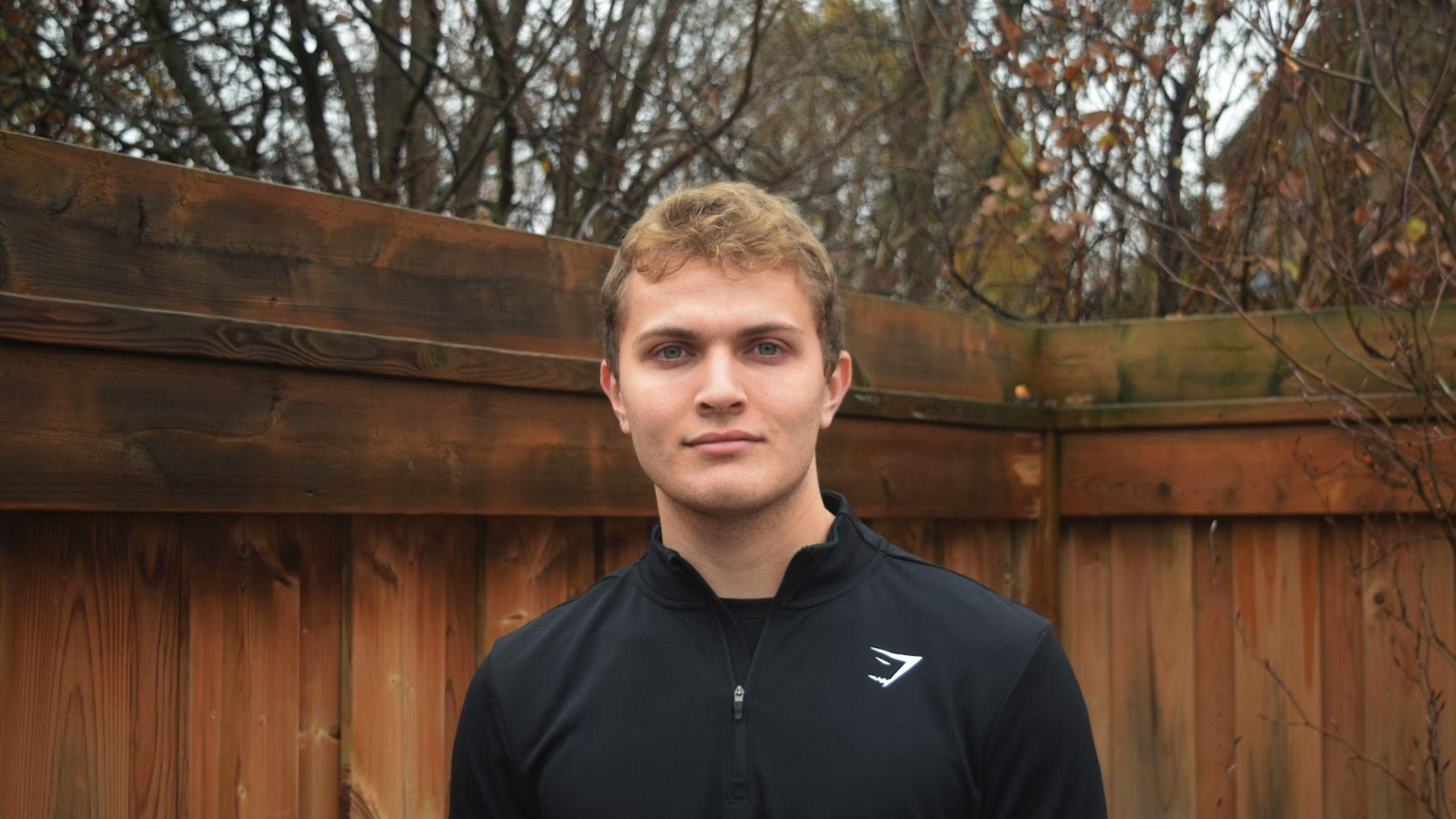By Charlize Alcaraz
After Christian Di Bratto’s hockey instructor gig was “derailed” due to the onset of the COVID-19 pandemic, he, like many others, stayed home most of the time.
Fresh out of high school and with his schedule cleared up from teaching private hockey lessons, Di Bratto got bored and decided to do something he hadn’t done before.
Out of interest in the way brand partnerships worked with internet creators, the now second-year business management student sent a direct message (DM) to Justin Escalona, a Los Angeles-based entrepreneur and founder of clothing brand Justin Escalona.
The conversation resulted in Di Bratto successfully brokering deals for Escalona involving a beef jerky brand and a gambling site, Forbes reported.
Looking back at the DMs now, Di Bratto describes them as “terribly written,” however, they also marked the first of many partnerships he would manage.
DiBratto said his business started taking off during the winter semester of his first year at Ryerson in 2021, when he scored two more deals. “That was when I knew in my head that I can do it for the summer instead of going to work regularly like I did,” he added.
Naming it Deebo, a nickname that one of Di Bratto’s former hockey coaches gave him, the agency reflects his genuine self, through and through.
Scrolling through his TikTok ‘For You’ page is how Di Bratto said he finds the influencers he plans to work with. “There’s no crazy scouting going on, it’s literally what I see scrolling through my phone.”
This approach is what landed him an opportunity to work with Daniel Mac, a social media creator with 12.4 million followers on TikTok, who is famous for asking strangers in cars what they do for a living.
Finding money in finance-focused TikTokers, DiBratto said some of his biggest deals were signing Nicholas Crown, known on the platform for his ‘Rich vs. Really Rich’ series; and Mark Tilbury, a financial educator.
In the past 18 months, Di Bratto said he has secured over $250,000 in brand partnerships for his clients.
Brands are increasingly shifting more money into influencer marketing compared to branded social media content. Mediakix, an influencer marketing agency, found in its 2019 survey of marketers that 65 per cent of influencer marketing budgets will increase in 2020.
This growth can be attributed to the fact that 61 per cent of consumers trust influencers’ recommendations, according to a survey by public relations agency Matter Communications.
A key advantage of influencer marketing is its ability to target hyper-specific demographics. An example of this, according to Di Bratto, is asking a cooking channel what their viewership make-up looks like. This data can then be used by brands to determine if their target clients fit the content creator’s general audience.
Di Bratto noted that although influencer marketing can span across Instagram, Facebook, Snapchat and Pinterest, most of his deals come from TikTok.
With no prior experience, everything Di Bratto knows about influencer marketing started from his first cold DM.
“I had no clue what I was doing, but to me, that was the best way to learn,” he said. “Even to this day, I’m still changing the scripts I use just based on what works and what doesn’t, but I thought it was a great learning experience in that sense.”













Leave a Reply